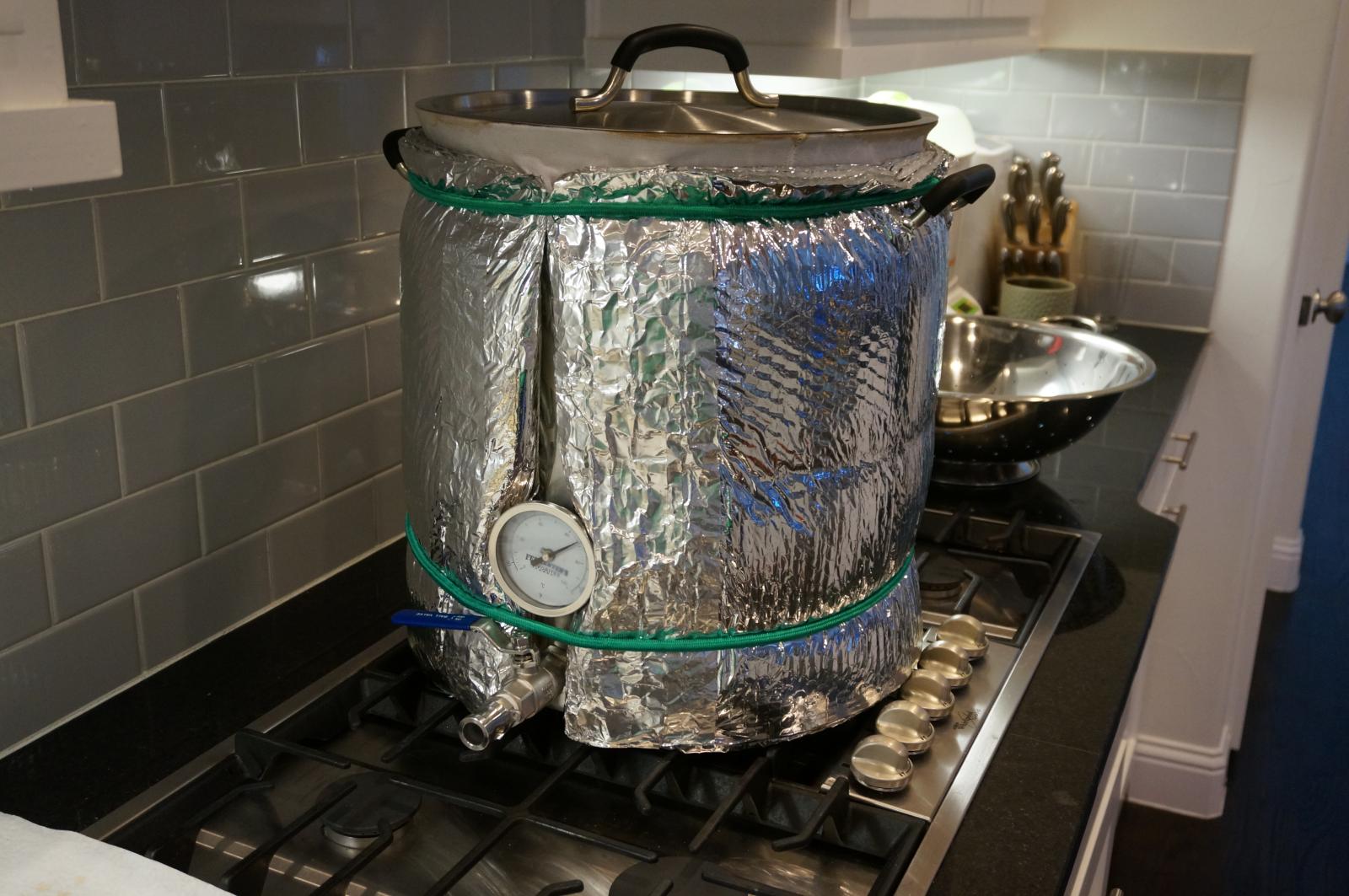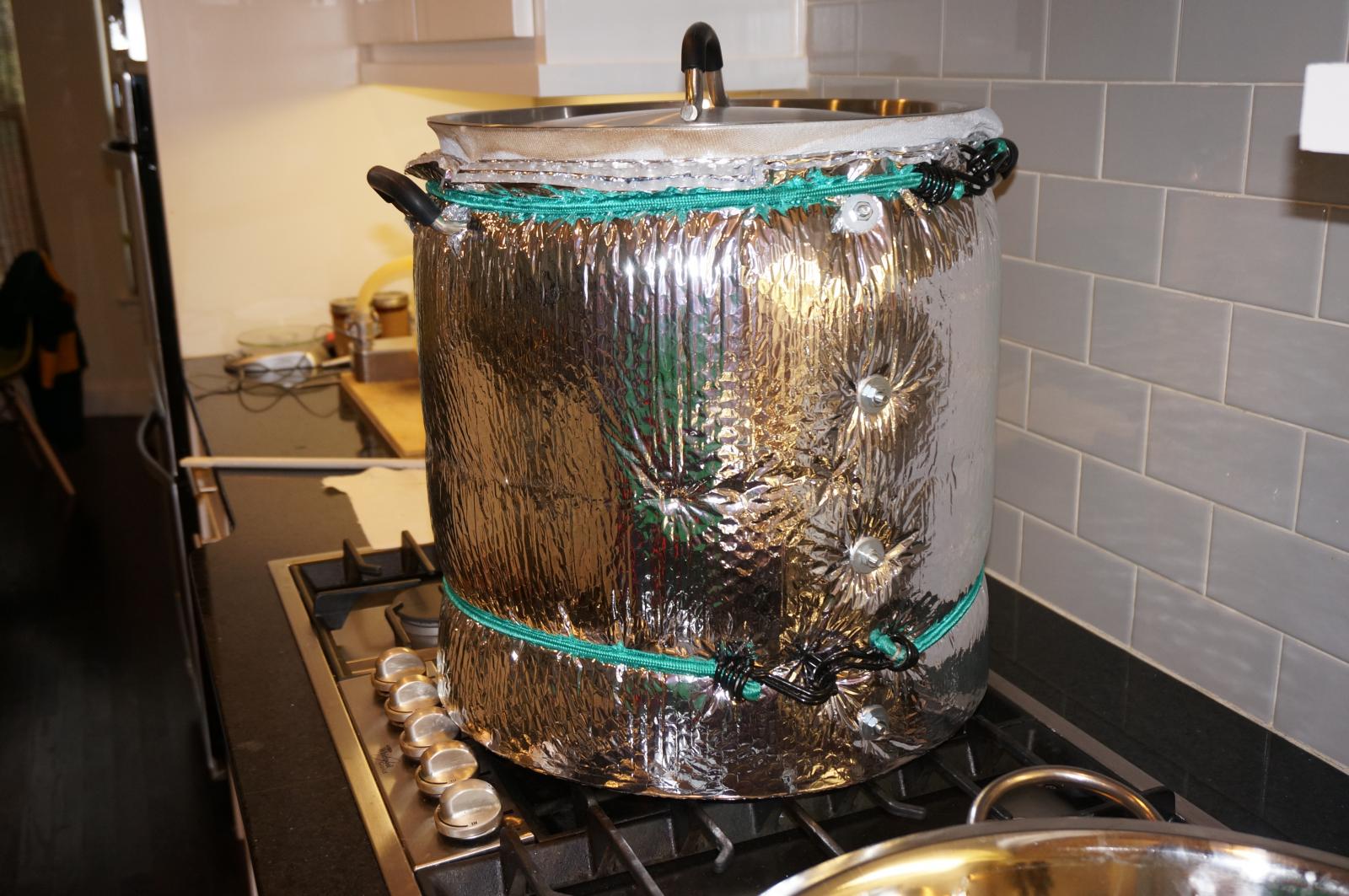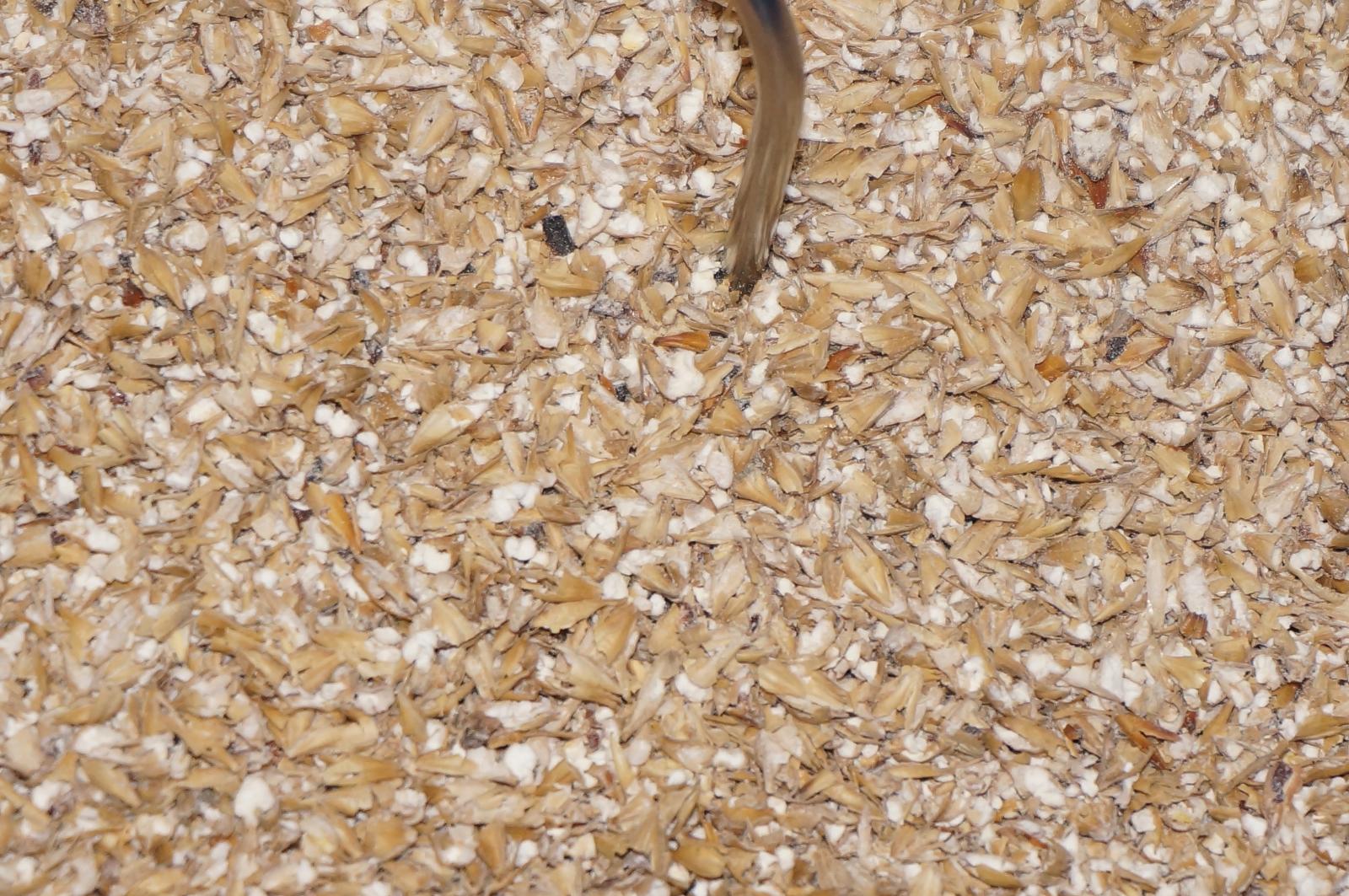https://www.homebrewtalk.com/f71/revvys-belgian-blonde-leffe-clone-202852/
I'm want to do the above recipe in a bag!
So I heat 14.2 qts water up to around 186, add the 2 row, Munich, biscuit, and melanoiden for ...45 mins... Then cool to 158 and hold for 45 minutes?
Then continue with a 60 min boil following the hops schedule as you would for an extract brew?
I'm want to do the above recipe in a bag!
Revvy's Blonde
Brew Type: All Grain Date: 4/25/2010
Style: Belgian Blond Ale Brewer: Michael
Batch Size: 5.00 gal
Boil Volume: 6.41 gal
Boil time: 90 minutes
Ingredients Amount Item Type % or IBU
9 lbs 13.0 oz Pilsner (2 Row) Bel (2.0 SRM) Grain 81.61 %
1 lbs Munich Malt (9.0 SRM) Grain 8.32 %
5.3 oz Biscuit Malt (23.0 SRM) Grain 2.75 %
3.5 oz Melanoiden Malt (20.0 SRM) Grain 1.83 %
1.36 oz Styrian Goldings [5.40 %] (60 min) Hops 23.4 IBU
0.71 oz Saaz [4.00 %] (30 min) Hops 7.0 IBU
10.6 oz Sugar, Table (Last 15 minutes of boil) (1.0 SRM) Sugar 5.49 %
1 Pkgs Abbey Ale (White Labs #WLP530) Yeast-Ale
Mash In: Add 14.20 qt of water at 178.4 F
Hold mash at 158.0 F for 45 min
So I heat 14.2 qts water up to around 186, add the 2 row, Munich, biscuit, and melanoiden for ...45 mins... Then cool to 158 and hold for 45 minutes?
Then continue with a 60 min boil following the hops schedule as you would for an extract brew?

























































![Craft A Brew - Safale S-04 Dry Yeast - Fermentis - English Ale Dry Yeast - For English and American Ales and Hard Apple Ciders - Ingredients for Home Brewing - Beer Making Supplies - [1 Pack]](https://m.media-amazon.com/images/I/41fVGNh6JfL._SL500_.jpg)




